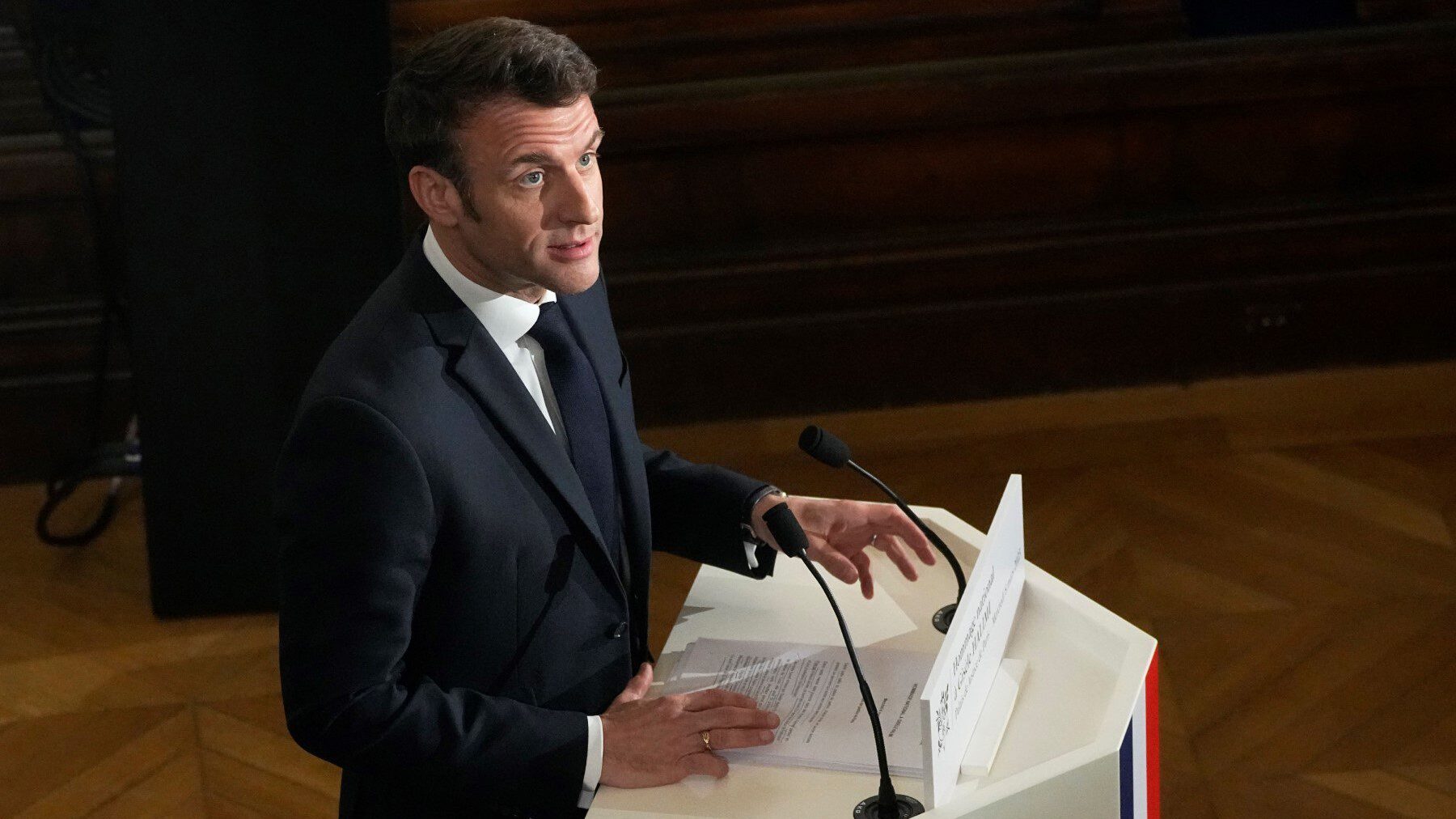
French president Emmanuel Macron delivers a speech during a ceremony in tribute to late French feminist figure Gisele Halimi at Paris courthouse, March 8, 2023.
Photo: Michel Euler/POOL/AFP
The process to have abortion enshrined in the French Constitution, launched a few months ago by a left-wing legislator, came to a standstill, after an examination of the bill resulted in two different drafts in the National Assembly and the Senate. This situation complicates the adoption of a common text.
In honour of International Women’s Rights Day, French President Emmanuel Macron relaunched the process by saying he was in favour of a bill to enshrine the “freedom” to abort in the Constitution of the 5th Republic. Emmanuel Macron voiced his support during a public tribute to the feminist lawyer, Gisèle Halimi, on March 8th. Gisèle Halimi distinguished herself in 1972 in the Bobigny trial, which paved the way for the decriminalisation of abortion in France. Halimi defended the accused, a sixteen-year-old girl who had had a clandestine abortion following a rape, and obtained an acquittal for her. This trial is considered to have played a major role in the evolution of opinion favouring what was to become the Veil law, decriminalising abortion, which was passed in 1975. There is now talk of having Gisèle Halimi interred in the Panthéon—the burial place for the French Republic’s notables.
Emmanuel Macron’s statement was welcomed by women’s rights groups, who have been campaigning for this constitutionalisation since Roe v. Wade was overturned by the United States Supreme Court in June 2022. “This is a big step towards securing the right to abortion in France and an exemplary advance for the rest of the world,” said Sylvie Pierre-Brossolette, President of the French High Council for Equality, who attended the ceremony. According to her, it is “important that the president of the Republic has done it on this occasion. It is the crowning of the work of Gisèle Halimi.” Some pro-choice activists, however, expressed their disappointment: the inclusion of the “freedom to abort” in the Constitution should not be the subject of a specific text, but should be included in a series of other constitutional amendments requested by the president.
The personal intervention by the head of state changes the statutory situation, as lawyer Pierre Gentillet, who is often asked for his legal opinion by the CNews channel, reminds us. The previous project was a ‘proposition de loi,’ (law proposal) initiated in the autumn of 2022 by Mathilde Panot, a member of the National Assembly from the France Insoumise party. In this revised instance it would be a ‘projet de loi’ (a bill), tabled by the government. The validation process is different: to change the Constitution on the basis of a government bill does not require a referendum. To pass the bill a three-fifths majority in the upper and lower houses of parliament is all that is needed. The proposal tabled by Panot would have made a referendum mandatory.
Several of the president’s political opponents pointed out the conspicuous political nature of the manoeuvre. At a time when the favourability of the head of state and government is low due to their pension reform project, Macron hopes to recreate a forum for consensus regarding a societal issue that has fairly broad approval among the French public.
However, the move is risky. The president would have to submit other constitutional modifications to a vote at the same time. Residential advisors mention a possible redrawing of the administrative regions, or a change in the definition of electoral mandates. By injecting these additional amendments, Mathilde Panot, the author of the first bill on writing abortion into the Constitution, feels this might raise the risk of a negative vote on all the amendments, which would render null and void the efforts made in recent months to constitutionalise abortion.
